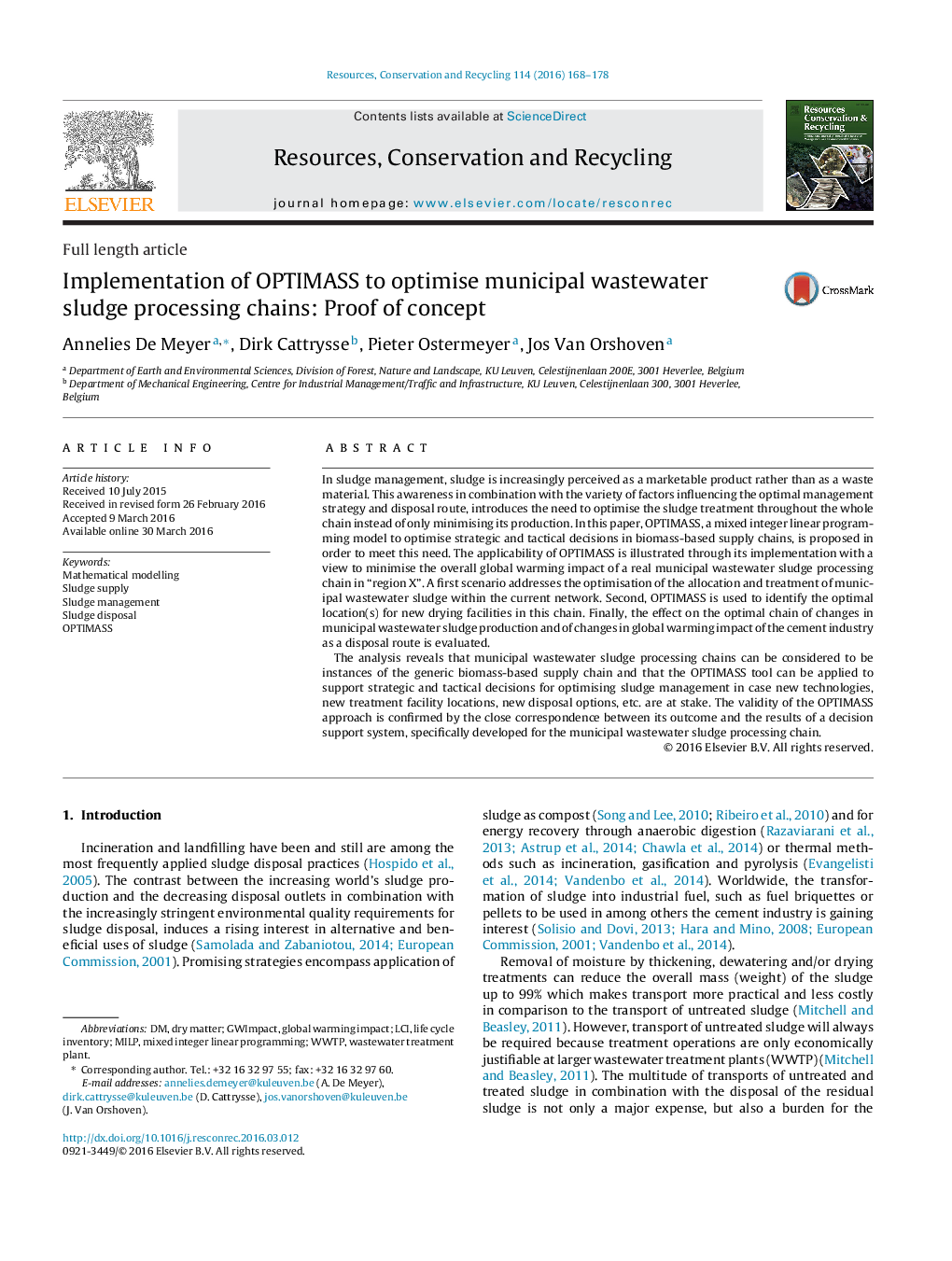| Article ID | Journal | Published Year | Pages | File Type |
|---|---|---|---|---|
| 1062670 | Resources, Conservation and Recycling | 2016 | 11 Pages |
In sludge management, sludge is increasingly perceived as a marketable product rather than as a waste material. This awareness in combination with the variety of factors influencing the optimal management strategy and disposal route, introduces the need to optimise the sludge treatment throughout the whole chain instead of only minimising its production. In this paper, OPTIMASS, a mixed integer linear programming model to optimise strategic and tactical decisions in biomass-based supply chains, is proposed in order to meet this need. The applicability of OPTIMASS is illustrated through its implementation with a view to minimise the overall global warming impact of a real municipal wastewater sludge processing chain in “region X”. A first scenario addresses the optimisation of the allocation and treatment of municipal wastewater sludge within the current network. Second, OPTIMASS is used to identify the optimal location(s) for new drying facilities in this chain. Finally, the effect on the optimal chain of changes in municipal wastewater sludge production and of changes in global warming impact of the cement industry as a disposal route is evaluated.The analysis reveals that municipal wastewater sludge processing chains can be considered to be instances of the generic biomass-based supply chain and that the OPTIMASS tool can be applied to support strategic and tactical decisions for optimising sludge management in case new technologies, new treatment facility locations, new disposal options, etc. are at stake. The validity of the OPTIMASS approach is confirmed by the close correspondence between its outcome and the results of a decision support system, specifically developed for the municipal wastewater sludge processing chain.
